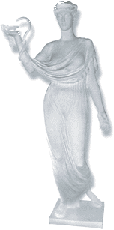

Ministry of Public Health and Social Development of RF
Russian Academy of Medical Sciences
Siberian Branch of Russian Academy of Medical Sciences
Siberian Branch of Russian Academy of Sciences
Medical Polar Fund “Science”
The Northern Forum



|
||

|
International Union for Circumpolar Health Ministry of Public Health and Social Development of RF Russian Academy of Medical Sciences Siberian Branch of Russian Academy of Medical Sciences Siberian Branch of Russian Academy of Sciences Medical Polar Fund “Science” The Northern Forum |
 
|
 |
Ecology and adaptation (medical ecology)
In the industrially developed countries where oil and other mineral resources are being mined special attention is given to ecological and ethnographic aspects of these activities. Any industrial exploration of territories does inevitable harm to nature especially in the northern regions where indigenous minorities of the Extreme North live and have their unique culture and traditions.
Hard climatic conditions of the Extreme North are difficult for the organism to support organism homeostasis. Morpho-functional features of the indigenous population of the Northern territories make it possible to decrease the load on the organism under the extreme conditions of everyday activities. However the North involves qualified specialists from other regions for economic development and uses non-traditional labour methods that influence health of both shift workers and effectiveness of their work. Studies of different regimens of work of labour and leisure of people working in the polar region showed ineffectiveness of long time shifts in the Extreme North (52 days), especially during winter time. The choice of the best labour and leisure regimen should be scientifically based for each case of natural resources development considering climatic, industrial, social-ecological factors and permanent living place of the personnel and provisions of living conditions.
Health sparing methods allow supporting high working abilities and good health state among people working in shifts for a long time. Rational nutrition plays also an important role. New enriched by specific mineral-vitamin combinations food stuffs that the specialists of the Scientific Research Institute of Polar Medicine of the Northern State Medical University worked out decrease the risk of pathological states that may develop under the extreme climatic industrial conditions. Providing the indigenous people with these products is urgent when considering ecology of the northern area and specific food of the north. Water of melted snow that the indigenous people drink is poor with micro elements. For example 100 % of the Nenets population has caries that is the result of fluorine insufficiency and one of the reasons influencing unfavourably on children’s health is iodine deficit.
The work that the specialists of the Northern State Medical University have carried out to study and preserve health of the indigenous people of the Extreme North lead to the formation of a new field in medicine – ethnic medicine.
Complex approach to the solution of problems of life support for the indigenous population and personnel of the gas and oil mining fields in the Extreme North will allow economic development and keep the vulnerable northern nature and unique ethnos.
Note. Abstracts are published in author's edition
|
Mail to webmaster
Main page |
© 1996-2005, Siberian Branch of Russian Academy of Sciences, Novosibirsk
Last update: 06-Jul-2012 (11:52:05)